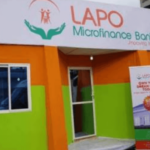CLEMENT IDOKO writes on the menace of examination malpractice in public examination in Nigeria and how the National Examination Council (NECO) is tackling the challenge and other reforms embarked upon by the council’s registrar, Professor Dantani Wushishi, to enhance the integrity of NECO examinations.
STAKEHOLDERS have continued to express concerns over the persistent and widespread examination malpractices perpetrated by candidates during the conduct of public examinations by the National Examination Council (NECO), West African Examination Council (WAEC) and Joint Admissions and Matriculation Board (JAMB).
Some of these forms of malpractices include mass cheating, impersonation, leakage of examination questions and bringing in prohibited materials into the examination hall. Another one is ‘dubbing,’ which takes the form of tattoos, missiles, micro chips; use of contractors or mercenaries, mobile phones as well as writing on the chalkboard. These are acts involving young Nigerians and in some cases perpetrated in outright collusion with schools that are used as examination centres, which experts observed have posed significant threats to the education system and the future of Nigeria as a nation.
For instance, when the registrar of NECO, Professor Dantani Wushishi released the results of the 2023 Senior School Certificate Examination (SSCE) Internal, on Tuesday, October 10, he announced that a total of 12,030 candidates were involved in various forms of examination malpractices out of the 1,205,888 candidates who registered for the examination.
He also revealed that a total of 93 schools were found to be involved in a whole-school (mass) cheating. However, in line with the zero-tolerance stance of the current administration, the registrar stated that the council would wield the big stick on the affected schools, noting the that the owners of the 93 schools would be invited to the headquarters of the council in Minna for questioning before appropriate sanctions would be meted out to them.
Nigerian Tribune reliably gathered that such schools designated as ‘miracle centres’ usually collect what they term as ‘logistics’ from candidates, ranging from N10,000 to N30,000, depending on the school for which the examination bodies organised the examinations.
It was further gathered that once the supervisors and invigilators who are ready to compromise are settled with the proceeds of logistics collected from candidates, they look away from whatever is happening in examination halls, while the teachers write answers on the chalkboards for the students to copy. Some candidates also freely go in with ‘missiles’ in form of textbooks, prepared answers in case of leak papers and other ways of cheating.
The consequences of this hydra-headed challenge are enormous, with experts saying that “examination malpractice compromises the integrity and fairness of assessments; undermines the efforts to foster a skilled workforce and erodes the public trust in the education system.”
A report by the United Nations Educational Scientific and Cultural Organisation (UNESCO) indicated that examination malpractice had increased by five percent in Nigeria, according to a survey by the Exam Ethics Marshals International. The report stated that 18 out of every 100 people who participated in examinations in Nigeria in 2012 were indicted for malpractices.
Also, a former registrar of NECO, Professor Charles Uwakwe, had revealed that a total of 1,283,485 candidates committed examination malpractice during the Senior School Certificate Examination from 2010 to 2016, while about 7,410,030 candidates sat for NECO examinations within the same period.
However, in an interview with the Nigerian Tribune, the current registrar and chief executive of NECO, Professor Dantani Wushishi, who himself is a professor of Science Education, said a number of measures had been put in place by his administration to reduce the incidents of examination malpractices during the council’s examinations.
He maintained that the indigenous examination body would not tolerate actions that would undermine the integrity of its examinations across the country, including examination malpractice.
While expressing the council’s readiness to totally root out incidents of examination malpractice in all its examinations, Wushishi also called for concerted efforts to address the menace headlong.
He said: “One of the biggest challenges bedevilling the conduct of public examinations now is the issue of examination malpractice”.
Speaking further, the NECO boss hinted that the council had rolled out several measures to check the problem of examination malpractice in the conduct of all its examinations.
He listed the measures rolled out by the council to curb the menace to include: effective conduct of accreditation and re-accreditation exercise in schools, biometric data capturing of candidates to check impersonation of candidates registered for examination and to help identify miracle centres where examination malpractices are perpetrated.
Others are: use of officers of the Nigeria Security and Civil Defence Corps (NSCDC) to provide security at examination centres, and to prevent miscreants/agents of examination malpractice, provision of covert operations by the officers of the Department of State Service (DSS) to guard against compromising examination through the internet, daily distribution of examination question papers and other sensitive materials, monitoring of marking exercise to ensure that best practices are observed, among others.
The NECO boss added, “Education is very important and one major important measure that we have put in place to stop the issue of examination malpractice is awareness.”
A document obtained from the council also indicated that Professor Wushishi had ensured the provision of e-library to enhance access to information and data on educational assessment, with a view to enhancing job efficiency in test development, quality assurance and curbing of examination malpractice and other infractions associated with public examinations in 2022.
The council also organised sensitisation workshops on the role of education stakeholders in tackling examination malpractice in Nigeria, in collaboration with the National Assembly, held in Lagos, Uyo and Abuja 2022.
Speaking further, Professor Wushishi said as part of efforts to improve on the welfare of workers for optimum productivity as well as to discourage them from involvement in such practices, robust welfare packages were put in place with the approval of the governing board.
“A retirement benefit package took effect from January, 2022. In the same vein, and with effect from the same date, an Insurance policy for all staff took off. The benefits of both welfare packages are legion, considering the delays in accessing pension and gratuity upon retirement from service and the risks and hazards associated with the NECO work,” he noted.
He also embarked on the expansion of zonal offices, construction of new buildings and rehabilitation of existing structures and infrastructure, equipping them with relevant ICT facilities in line with the ongoing reforms to make NECO responsive to the realities of the 21st Century where technology is key.
Professor Wushishi also undertook advocacy visits to the government and the people of Ebonyi, Cross River and Borno states as part of his ongoing efforts to enlist the support of the state governments in tackling some of the challenges impeding the conduct of hitch-free examinations across the nation, including the issue of examination malpractice and making NECO examination compulsory in public schools across the states.
In Ebonyi and Cross River states, the registrar sought and got approval from the governors of the states for NECO examinations to be made compulsory in all public schools, while a similar response is being awaited from Borno State.
Nigerian Tribune also gathered that council under the watch of Wushishi also unveiled NECO e-verify App for result verification/confirmation in 2023, which he noted would substantially address the issue of certificate forgery and presentation of fake results for the purpose of admission into tertiary institutions and even at workplaces.
He also pursued vigorously, the removal of NECO among ministries, departments, and agencies (MDAs) that remit 25 percent automatic direct deductions to the Federal Government Consolidated Revenue Fund (CRF) which had greatly stifled the council of funds to carry out its mandate. The Federal Government removed NECO and stopped the deductions in June 2022.
Meanwhile, the executive director of Education Rights Initiative, Dr Solomon Udah, has asked NECO and other examination bodies to use Information and Communication Technology (ICT) to tackle the pervasive cases of examination malpractices in the country.
Speaking with Nigerian Tribune in Abuja, Udah, advocated for stiffer penalties for perpetrators of examination malpractice in schools, especially during the conduct of public examinations by the various examination bodies.
The Minister of Education, Professor Tahir Mamman, SAN, has already set up an eight-man committee to draw up an implementable roadmap for education. One of the things he emphasised during the inauguration of the committee was restoration of quality of education in Nigeria, which stakeholders observed could only be possessed when the menace of examination malpractice is tackled for actual teaching and learning to take place in the school system across the country.
READ ALSO FROM NIGERIAN TRIBUNE






